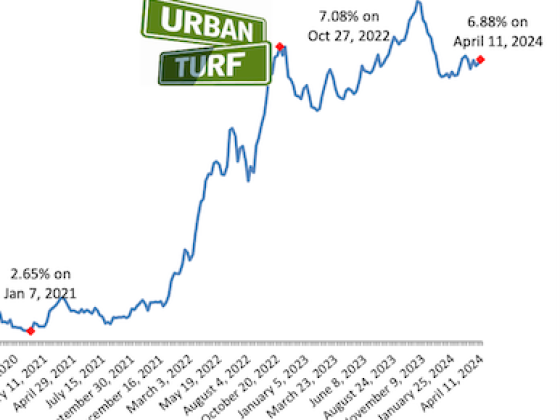 Sponsored: 8 Tips for Winning in a Multiple-Offer Situation
Sponsored: 8 Tips for Winning in a Multiple-Offer Situation
DC is experiencing major population growth and the real estate market is (once again) becoming incredibly competitive—particularly while inventory is low.

Holly Worthington, Long & Foster's expert on multiple-offers situations
Most of the city’s properties listed at under $1 million are now getting multiple offers. And to complicate matters, interested investors have an edge on the average buyer, as they are more willing to pay cash and more likely to write offers with few or no contingencies.
Holly Worthington, Long & Foster’s managing broker and an expert on multiple offer buying situations, offers some tips on how to compete in this environment.
Worthington has nearly 30 years of DC real estate experience and currently manages Long & Foster’s Chevy Chase and Woodley Park offices. In 2005, she chaired a committee on multiple offer buying situations for the Greater Capital Area Association of Realtors (GCAAR). She then co-wrote a Realtor’s guide on how to handle multiple offers and, later, taught a GCAAR course on the topic.
Are you in competition to buy a home in DC? Heed Worthington’s advice…
1. Make the strongest offer you can. Use an escalation clause with at least a 3 percent increment of the sale price, and cap your bid at the highest price you can comfortably pay.
2. Give a large earnest money deposit. Ten percent of the sale price is compelling.
3. Have a very short (2-3 day) home inspection contingency. Or, with permission from the seller, do a pre-contract inspection so you can submit your offer without a home inspection contingency.
4. Include a very short financing contingency. If you are financing your purchase, tell your lender you are in competition and ask for the shortest financing contingency period possible. Of course, an offer without a financing contingency is best, but be sure to ask your agent and lender about the risks.
5. Consider removing the appraisal contingency. In a multiple offer situation, the seller may be reluctant to accept a high-price offer that has an appraisal contingency. This is because the language of an appraisal contingency allows for price re-negotiation if the appraised value is lower than the contracted price. If your offer has a financing contingency that includes a low down payment then your financing is most likely already contingent on appraisal. Removing this contingency is a way to potentially set your offer apart from the competition, but ask your lender or agent to explain the risk.
6. Get a feel for the competition. Ask the listing agent if he/she plans to write an offer for the property as well. (The listing agent may have either a buyer or been approached to write an offer.) If so, ask the listing agent whether his/her broker will be presenting the offers to the seller. Also ask daily—until the offer deadline—about how many offers are registered and if more are likely to come in based on the interest level.
7. Personally presenting offers to the seller, though uncommon, is effective. Some sellers are willing to let buyer’s agents present offers in person. This can give the seller an idea of who is working on the other side of the transaction. It can also give the seller an opportunity to get a broader picture of the buyer. If an in-person presentation isn’t possible, couple your offer with a letter explaining your interest to the seller.
8. And finally, if your agent tells you to write a strong offer because you are competing, do it—especially if you’d be heartbroken to lose the property. You usually have only one chance to be chosen as the buyer, and most buyers regret not being aggressive in this market.
If you are interested in contacting Holly Worthington, click here; or get in touch directly by phone (202-363-9700) or by email.
This article originally published at https://dc.urbanturf.com/articles/blog/sponsored_8_tips_for_winning_in_a_multiple-offer_situation/5591.
Most Popular... This Week • Last 30 Days • Ever

DC's homebuyer assistance programs can be a bit complex. This edition of First-Timer ... read »

When it comes to financing a home purchase, a 30-year mortgage is one of the most com... read »

Pocket listings are growing in popularity in the low-inventory market in the DC regio... read »

Plans for the development at a prominent DC intersection began nearly eight years ago... read »

The eight-bedroom, 35,000 square-foot home in McLean originally hit the market in 202... read »
DC Real Estate Guides
Short guides to navigating the DC-area real estate market
We've collected all our helpful guides for buying, selling and renting in and around Washington, DC in one place. Start browsing below!
First-Timer Primers
Intro guides for first-time home buyers
Unique Spaces
Awesome and unusual real estate from across the DC Metro













